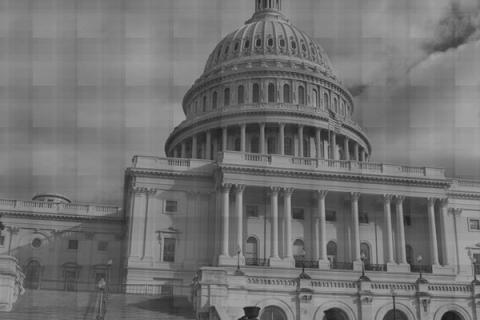Do you have running water in your home? Does your home have a heating system? Does it contain electrical wiring? Have you ever twirled spaghetti on a stainless steel fork? Did you brush your teeth with toothpaste from a tube? Are the walls in your home made of sheet rock held together with metal nails? Have you ever been immunized? Do you own a car? A bike? A computer? Do you have a stove, refrigerator, microwave, blender, frying pan, camera, cell phone, clock, TV, radio, razor, scissors, paper clips, stapler, pen, pencil, lamp, bed, books, magazines, newspaper, or clothes with a zipper?
Just about everything we encounter in our daily lives, from the light we switch on in the morning to the metal eyelets in our hiking boots, is the direct or indirect result of some mining activity somewhere. Even our natural fiber clothes are not only stitched together on sewing machines, but are affordable because mining makes the machinery possible that can mass produce them. Quite simply, our standard of living, including modern medicine, water delivery and waste disposal systems, an abundance of food, and modern communications, would not be possible for anyone, including EPA bureaucrats, if all mining activity were to stop.
I live in a mining community that is also home to a twenty-nine year old EPA superfund site, and while there may be an occasional exception, it's been my experience that most EPA officials have nothing but contempt for mining and miners. About the only thing EPA (or at least EPA lawyers) seem to appreciate about mining are the mining companies' supposedly deep pockets (one large mining company that used to be here, ASARCO, is now bankrupt).
According to a recent article in the Wall Street Journal, in EPA's ongoing war against mining, the latest target in their crosshairs is hydraulic fracturing, or "fracking," a process used to extract natural gas and petroleum products from rock. While I don't know anything about fracking except what I've read recently, I do know a lot about how the EPA works, and those communities that are now being invaded by federal bureaucrats conducting their various studies, assessments, and impact statements have my deepest sympathies.
Anyone under the impression that the EPA is sincerely concerned about the environment doesn't know how the EPA actually functions. Like other originally well-intended ideas, the EPA quickly became a massive federal bureaucracy, and like all government bureaucracies, their first priority is the preservation of their place at the trough. Also, the EPA's own rules virtually guarantee the pollution or destruction of pristine areas by making new owners liable for the clean-up of prior activities. Rather than locating in already impacted areas, companies that want to build a new factory in the U.S. (if there are any left) will look for pristine areas--areas free of pollution and EPA liability.
Before moving here about thirty years ago, like most people, I never gave much thought to mining. But the fact is, mining is not only indispensable to modern life, it is also dangerous, dirty work, especially underground. So, if there's a way to get natural gas--or anything else--from under the ground that doesn't require sending people under there to get it, that's a process that should be helped, not hindered. While there are some unproven claims that livestock and birds have died, as a result of fracking activity, thousands of people die every year in mining accidents.
As a group, miners are decent, hard-working people--and, so are mine owners. The thing that EPA officials and other environmentalists never seem to understand is that the people they are obsessed with vilifying are just that--people. Like them, they have to breathe the air and drink the water; they have families they love, and the same human aesthetic predisposition to appreciate beautiful mountain scenery, a romp on the beach, or a quiet walk.
In other words, mining isn't something that's done to deliberately destroy the planet, or even because those involved don't care about their impact on the earth, but because there is a demand for stuff that can only be found underground. Unless the goal is to make sure only the super-rich can afford to heat their homes, we don't need a bunch of government regulations for fracking. Every time people start advocating for more regulation (of anything) the one aspect they always seem to forget, or ignore, is that the costs of complying are ultimately, and always, borne by the consumer--and the poorer the consumer, the greater the financial impact.
While it's scary to hear about things like arsenic, cadmium, lead, zinc, etc., it should be remembered that these materials are just as "natural" to the earth as plants and animals. And just like some plants and animals, some minerals and metals are dangerous to humans and some are beneficial.

